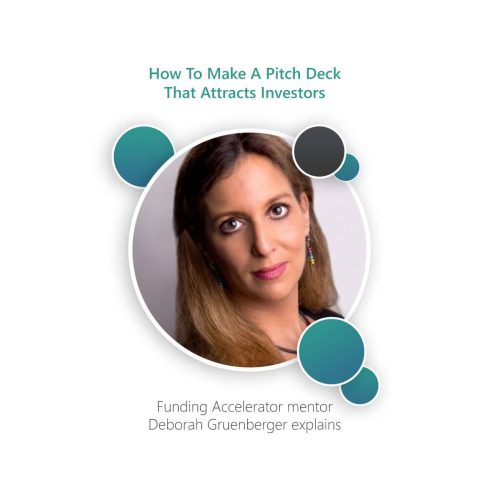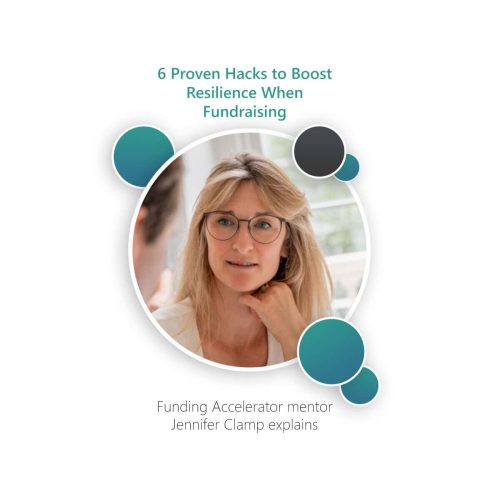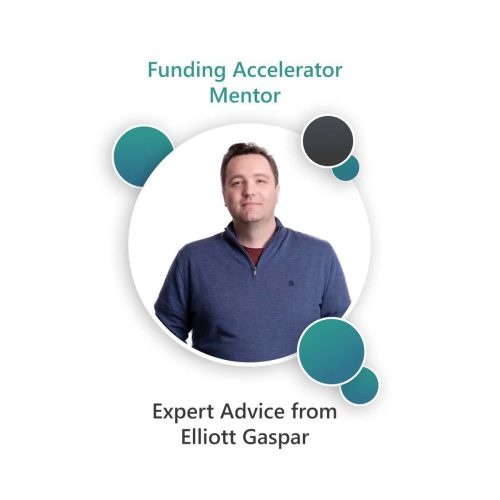Securing your first round of funding is a significant milestone for any start-up, but the journey doesn’t end there. Maintaining strong relationships with your investors is crucial for ensuring continued support and success. Remember, Investors are not just sources of capital, they can be valuable partners who provide guidance, connections, and future funding. In this blog, we’ll explore strategies to keep investors engaged and supportive long after the initial funding round has cleared.
Why Maintaining Strong Investor Relationships is Crucial
Investors who have supported you in the past are far more likely to continue backing you in future rounds, but only if they feel informed, engaged in your business planning and if their inputs are valued. Rather than just keeping investors in the loop, look for ways to proactively seek their feedback and insights. This can lead to a number of several benefits:
Increased Likelihood of Follow-On Funding: Investors who are regularly updated on your business’ progress are more inclined to “follow on” with additional funding, assuming progress is being made in the right direction. Investors want to see that their initial investment is being managed effectively and that you are making tangible progress. This inspires confidence and can lead to follow-on investment.
Avoiding Surprises: Investors hate being surprised, especially when the next conversation is a funding request. Regular investor updates ensure that investors are aware of your company’s progress, the challenges you face and how you are addressing them. This will make them more receptive to future funding discussions.
Building Trust and Confidence: Transparent and ongoing communication helps build trust. When investors feel they are part of the journey, they are more likely to remain supportive and engaged. They are also better able to make helpful suggestions. A win win situation.
How to Maintain Strong Investor Relationships
1. Consistent and Transparent Communication
One of the most important aspects of maintaining strong investor relationships is consistent and transparent communication. You should aim to keep investors informed about the progress of their investment and the overall direction of the company.
Tips for Effective Communication:
Regular Updates: Schedule regular updates. , whether monthly updates may create too much workload initially, but quarterly updates to keep investors in the loop is a good place to start. Ask your investors how frequently they would like you to communicate and even ask if they prefer communications to be in the form of newsletters, emails, or even video calls.
Be Honest: If you encounter challenges, be upfront about them. Investors appreciate transparency and are often more willing to help if they understand the full picture. Most investors will have experienced similar problems in their working life so they can help by suggesting things to try, or connecting you to people who can help.
Highlight Milestones: Celebrate key milestones with your investors, such as reaching revenue targets, launching new products, or entering new markets. This not only keeps them excited but also reinforces the progress you’re making.
Involve Investors in Key Decisions
While it’s important to maintain autonomy, involving investors in key decisions can make them feel more connected to your company. Their experience and networks can also be invaluable assets in navigating complex business challenges.
Ways to Involve Investors:
Advisory Roles: Invite experienced investors to join your advisory board or organise strategy days to consult with them on strategic decisions.
Regular Feedback Sessions: Hold periodic feedback sessions where investors can share their insights and advice on your business strategy and operations.
Board Meetings: Its a really good idea to get into the habit of holding board meetings. It can be helpful to include key investors in these board meetings, or invite them along periodically when you think they have particular expertise they can contribute to high-level decision-making.
Deliver on Promises
Nothing strengthens investor trust like delivering on the promises you made during your fundraising. Whether it’s hitting growth targets, launching products on schedule, or achieving profitability, following through on commitments builds confidence and long-term trust. Good practise suggests you should aim to:
Set Realistic Expectations: During your initial pitch and ongoing communications, set achievable goals. Overpromising can lead to disappointment, while exceeding modest targets can delight investors.
Be Accountable: Hold yourself and your team accountable for meeting goals. Regularly review progress against your commitments and adjust your strategy as needed to stay on track – and don’t forget to keep investors informed about how things are going. Remember, no one likes surprises when it is bad news!
Provide Access to Company Resources
Giving investors access to your company’s resources can help them feel more connected and invested in your success. This might include access to internal documents, reports, or even opportunities to meet your team. There are lots of different ways to do this which include:
Investor Portals: Create a secure online portal where investors can access financial reports, business plans, and other key documents. Don’t forget to protect access with a password. You don’t want just anyone seeing your company documents!
Open Houses: Host virtual or in-person events where investors can meet your team, tour your facilities, and gain a deeper understanding of your operations.
Regular Q&A Sessions: Organise Q&A sessions where investors can ask questions directly of you and your executive team.
Keep Investors Engaged in Your Vision
Investors are more likely to stay engaged if they believe in your long-term vision. Continuously reinforcing your mission and goals can help keep their enthusiasm high. It also helps you and the team stay on track too. There are lots of ways to do this, but why not try:
Storytelling: Use storytelling in your communications to remind investors why they believed in your business in the first place. Share success stories, customer testimonials, and case studies that align with your mission.
Long-Term Roadmaps: Share your long-term plans with investors, including future product developments, market expansions, and potential exits. This helps them see the bigger picture and the potential return on their investment.
Leverage Your Investors’ Networks
Investors can be valuable connectors, opening doors to new opportunities, partnerships, and clients. Actively engaging them in this way can lead to mutually beneficial outcomes and deepens an investor’s connection with your business.
Ask for Introductions: A good place to start can be to ask investors for introductions to potential partners or clients. You might event like to ask them to introduce you to other investors.
Invite Collaboration: Encourage investors to collaborate on business development strategies or co-invest in new projects.
Network Updates: Keep investors informed about any new relationships or partnerships they helped facilitate, reinforcing the value they bring beyond capital – and your thanks for their support.
At the end of the day, people buy from people
The old saying “people buy from people” is true. Investors are human. If they like you, are kept informed of business progress and feel their input is valued, they are more likely to continue to support your business. Maintaining strong relationships with your investors after the first funding round is essential. It helps your startup achieve long-term success by tapping in to investors advice, strategic insights and connection. It can also make your investors more likely to commit follow-on funding to your business should it be needed. Remember, investors are not just financial backers, they are partners in your journey, and nurturing these relationships can lead to sustained growth and success.
Looking for some further reading on investor relationships? Why not take a look at:
- Pitch Deck Secrets: 3 Things That Make Investors Love You
- Resilience Training: 6 Proven Hacks to Boost Resilience When Fundraising
- Advice from 10 Founders: Proven Ways to Fund Your Business
Or, if you’re preparing for your next funding round, consider joining our Funding Accelerator
- How to Find Investors (Without Losing Your Mind) - June 17, 2025
- How to Raise Money (Without Losing the Plot) - June 9, 2025
- How I Raised £250K – and Help Other Founders Scale with Equity Funding - June 9, 2025






















